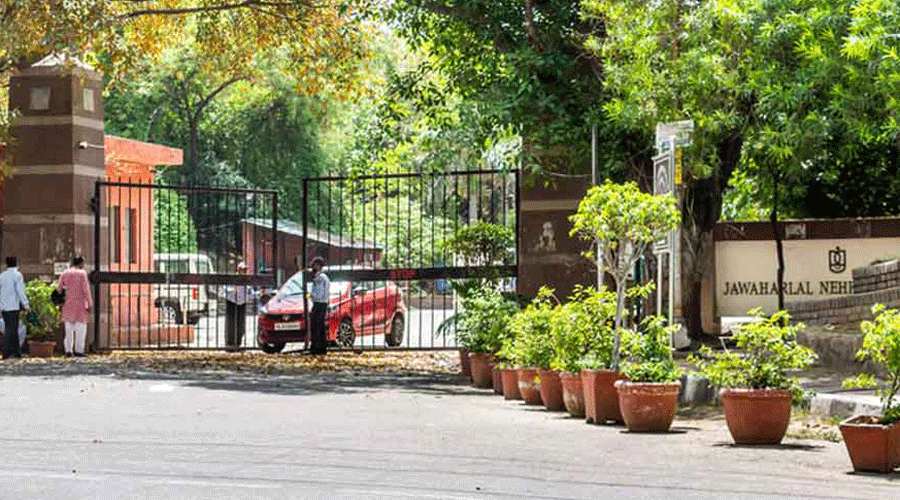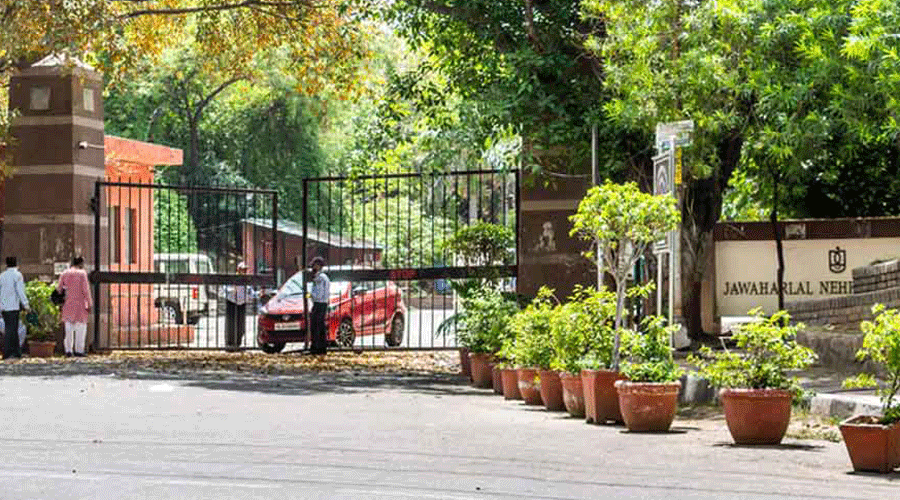Uncertainty looms whether JNU can admit PhD students this year while postgraduate admissions will be delayed, the university’s teacher association said on Monday, blaming the National Testing Agency that conducts all-India entrance tests.
The NTA’s Common University Entrance Tests for undergraduate and postgraduate courses (CUET-UG and CUET-PG) have suffered long delays, pushing the academic calendars of universities into disarray, the JNU Teachers Association (JNUTA) said at a news conference.
UGC chairman M. Jagadesh Kumar had said the CUET-UG would be held in the first and second week of July.
However, the glitch-ridden test started on July 15 and ended on August 30. The CUET-PG ended on Sunday.
Worse, the agency had promised to hold a CUET-PhD too but backtracked in mid-August, leaving in the lurch JNU and 19 other central universities that had agreed to participate. Normally, JNU held its entrance in May and completed PhD admissions by August.
JNU authorities are yet to clarify how they would admit PhD students, whether by holding their own entrance tests or through the National Eligibility Test (NET), an avenue adopted by newer universities but shunned by premier institutions like JNU.
The NET is mainly meant to select those eligible to be university and college teachers. The bi-annual NET, too, will be held only this month – after a 15-month gap.
“Delayed admission or no admission will affect poor and marginalised students the most,” JNUTA vice-president Ayesha Kidwai said. According to the teachers’ body, 50 per cent of JNU students are from rural India and the family incomes of 47 per cent are less than Rs 12,000 a month.
Before 2019, JNU held its own entrance tests for master’s and PhD courses with a mix of MCQ, objective-type (short answers) and subjective-type questions. From 2019, the university outsourced the tests to the NTA, which set only MCQ papers.
Now that the NTA has backtracked from holding the CUET-PhD, the university is trying to get it to agree to conduct a separate PhD entrance test for it, as in the past three years.
Hyderabad Central University, which too had signed up for the CUET-PhD, has decided to hold its own PhD entrance test in October, which will delay admissions.
The teachers’ association has demanded that JNU move out of the CUET system and hold its own entrance tests at all levels, citing the delays, the inadequacies of MCQ tests and the loss of autonomy for universities which must depend on the NTA’s timetables.
“I’m not against the CUET per se; it’s actually a good idea that reduces the burden of multiple tests to a great extent,” said Debashis Ghoshal, a JNUTA member.
He said the problem was about making it “mandatory for all programmes” and forcing the universities to adopt it.
“The other (issue) is the inadequate preparation with which it was launched on a national scale, especially when the system was coming out of the after-effects of the pandemic. It should have been tested on a small scale,” he said.
He added: “There is a misconception that the MCQ is an ideal model for testing competence in science subjects. It’s not true. Writing a correct answer is less important than assessing how the student arrived at the answer. In an MCQ test, a student may make a small mistake in the last step and get a wrong answer, and not receive any credit.”
JNU has 450 undergraduate seats, 1,500 postgraduate seats and 800 PhD seats. The teachers believe that the first semester for the postgraduate courses will probably start as late as January next year.











